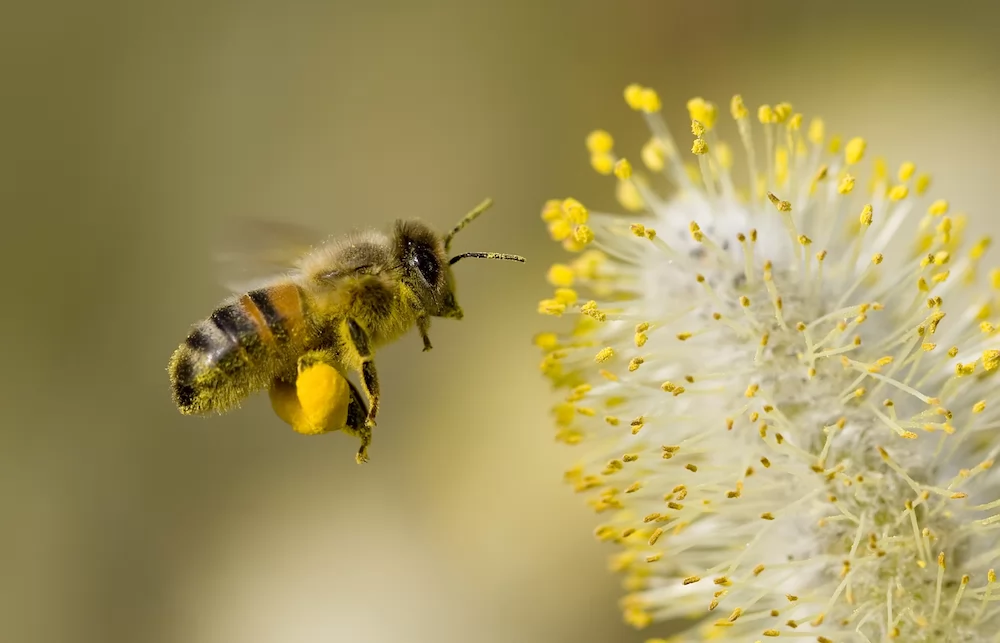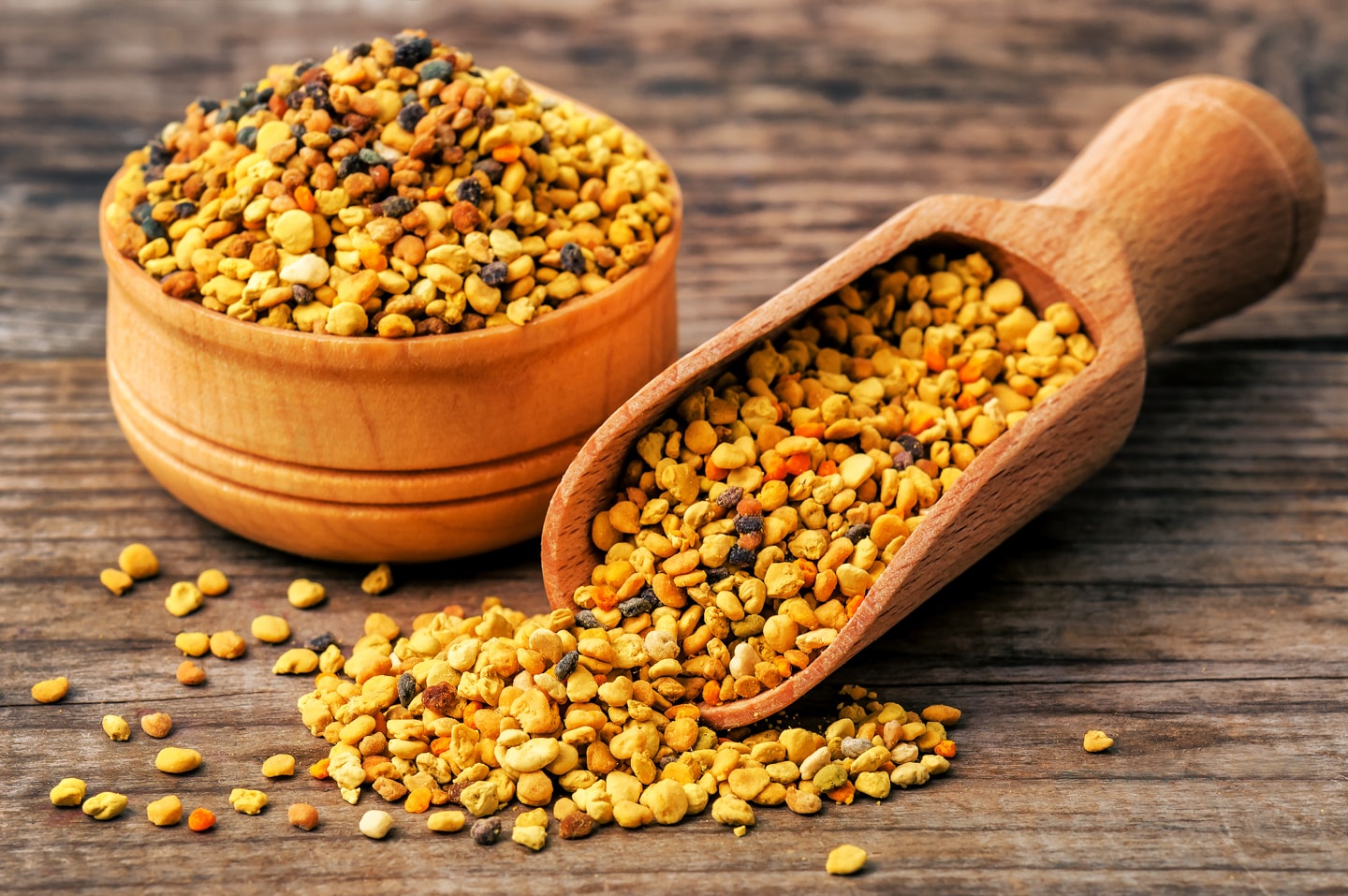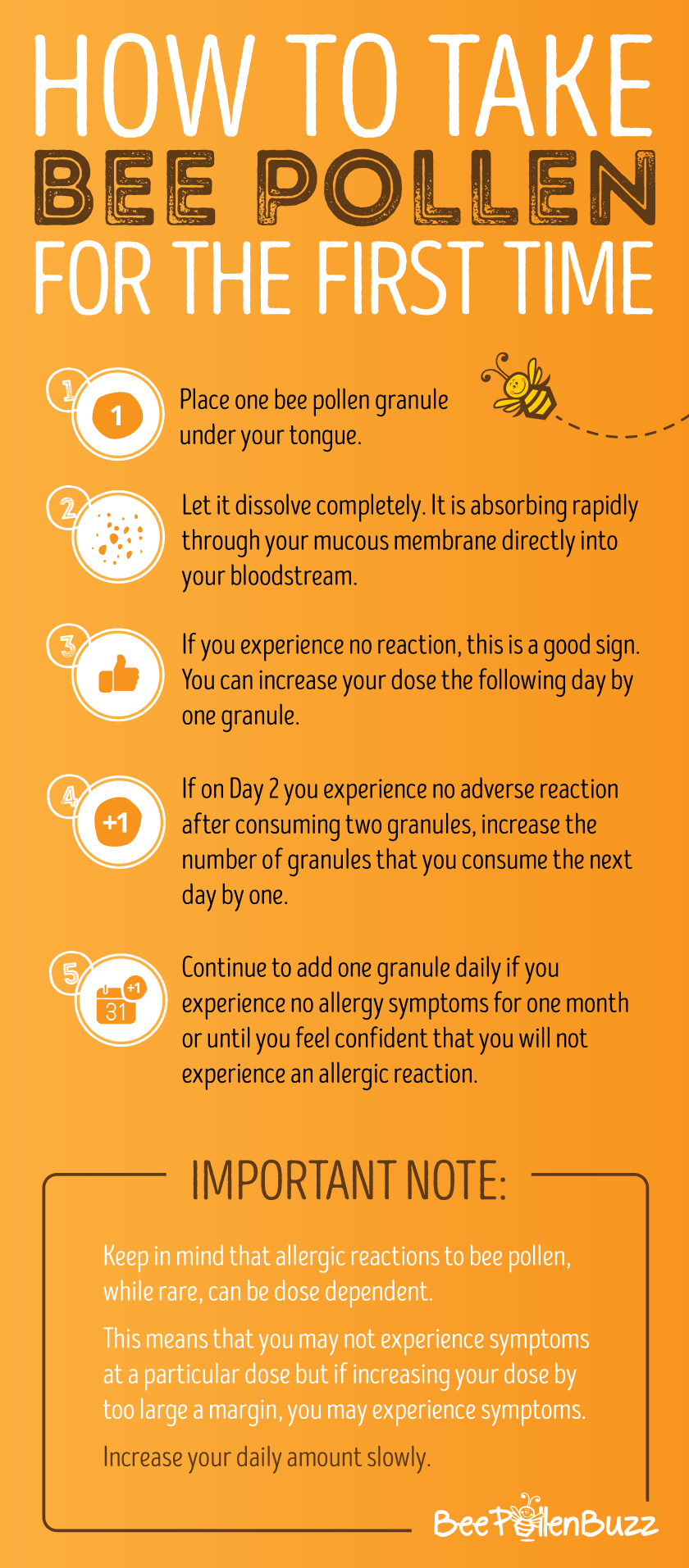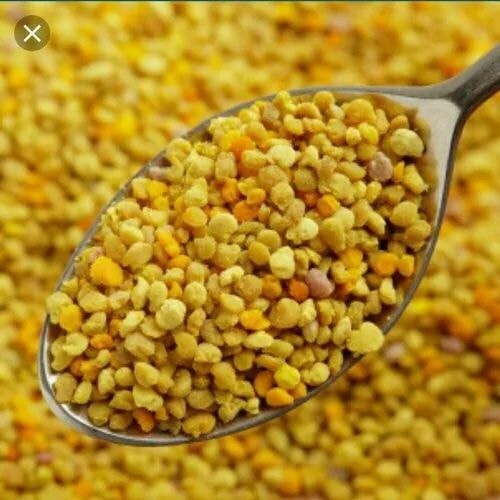Note: This post contains Amazon affiliate links. We may earn a commission from purchases at no extra cost to you. Thanks for supporting our blog!
The following article is not intended to diagnose, treat, cure, or prevent any disease.
Pollen is 100% natural and bioenergetic for the regeneration and revitalization of the body. It is the most nutritious protein food, both for bees and humans. Without pollen, there is no development of the bee family, even if it is full of honey. Pollen is rich in nutrients and has an ideal combination of vitamins (A, B, C, E, D), 29 minerals (potassium, silicon, gallium, mercury, magnesium, zinc, lead, cadmium, copper, zirconium, phosphorus, palladium, molybdenum, chromium, vanadium, tin, calcium, manganese, iron, aluminum, platinum, titanium, strontium, silver, nickel, barium, tungsten, cadmium, and iodine), proteins with all amino acids, and over 50 enzymes, which attest to the medicinal properties of this gift from nature. In 100 grams of pollen, the following vitamins are present: B1, B2, B3, B5, B6, folic acid 0.1 - 3.68 mg, C, H, D, E, plenty of vitamin A (carotene), vitamin P (rutin), which plays a significant role in blood supply from the ends of brain cells, thereby preventing senility, increasing circulation, and reducing the risk of stroke.
Pollen contains substances similar to male and female hormones, so it is often used for male and female sexual disorders. Pollen has certain antibacterial and antimicrobial effects.
Daily use of pollen can neutralize the following bacteria: Escherichia coli, Proteus vulgaris, and Salmonella, the microbes Staphylococcus haemolyticus I pyogenes, Salmonella enteritidis, protozoa Paramaecium caudatum, Amoebia limax, Euglena viridis, Vorticella, and others.
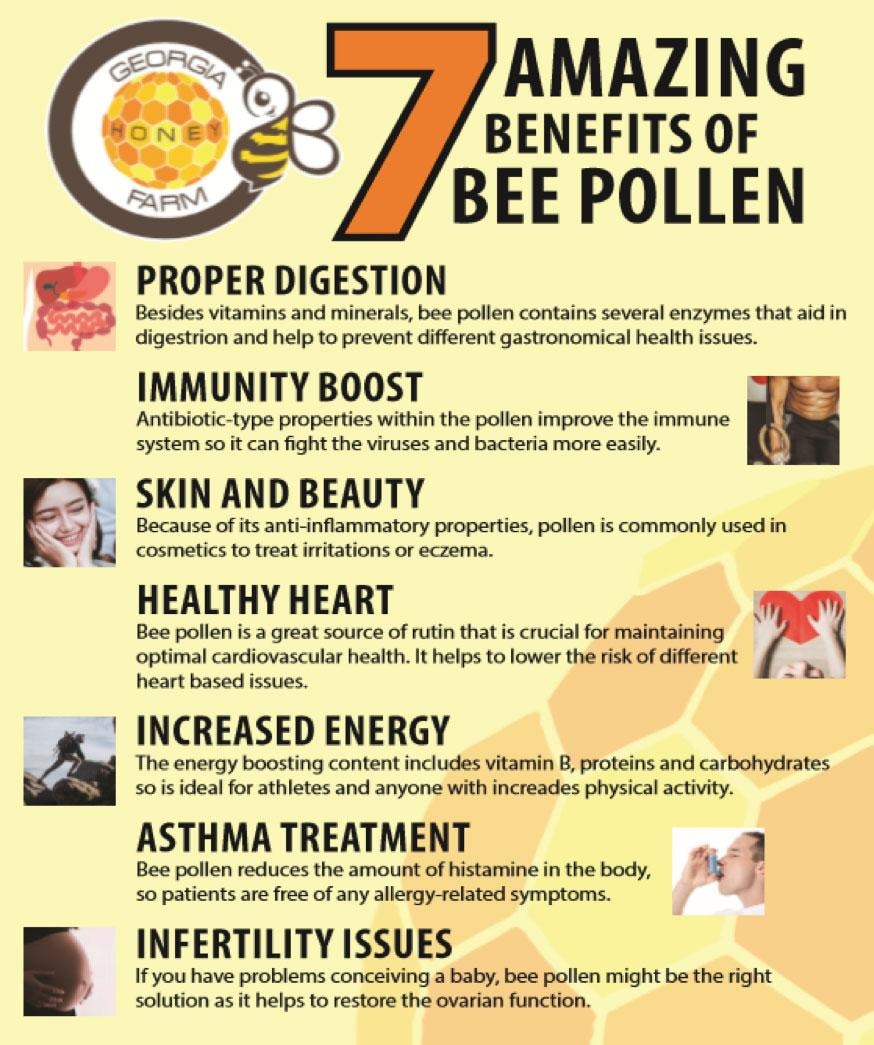 It is good for people to consume 1-3 small teaspoons of pollen in their diet because it contributes to the rapid recovery of the sick, as well as the improvement of the condition of healthy people as a preventive measure against disease. Good results are obtained in cases of anemia, hypertensive diseases, immune system improvement, anemia in children, hard-to-heal wounds, strengthening the body, chronic diseases of the digestive organs, kidneys, and urinary tract, premature aging, treatment of the entire cardiovascular system (heart and blood vessels) arteriosclerosis, treatment of skin diseases, nourishing and rejuvenating the skin, treating anemia, ulcers, stomach, and duodenal problems, severe surgical operations, intoxication, removing fatigue, stress, and depression, improving circulation, treating the prostate, and improving sexual potency and refreshing the body after infections.
It is good for people to consume 1-3 small teaspoons of pollen in their diet because it contributes to the rapid recovery of the sick, as well as the improvement of the condition of healthy people as a preventive measure against disease. Good results are obtained in cases of anemia, hypertensive diseases, immune system improvement, anemia in children, hard-to-heal wounds, strengthening the body, chronic diseases of the digestive organs, kidneys, and urinary tract, premature aging, treatment of the entire cardiovascular system (heart and blood vessels) arteriosclerosis, treatment of skin diseases, nourishing and rejuvenating the skin, treating anemia, ulcers, stomach, and duodenal problems, severe surgical operations, intoxication, removing fatigue, stress, and depression, improving circulation, treating the prostate, and improving sexual potency and refreshing the body after infections.
Thanks to the present rutin (antioxidant), it protects blood vessels, positively affects intestinal flora, and is a natural remedy against arteriosclerosis. It improves blood count, lowers cholesterol, increases brain activity, and improves the quality of the skin which it refreshes and regenerates as a nourishing mask.
Pollen contains amino acids, making it extremely nutritious, so athletes especially use it.
It is an excellent supplement in the diet of children, pregnant women, and nursing mothers.
Men after 40 years of age, for the protection of the prostate and the maintenance of sperm vitality, should take 1 tablespoon or 15 grams of pollen daily.
Patients suffering from prostate cancer should not use pollen as it may lead to bleeding.
More Benefits of bee pollen
Bee pollen is considered so beneficial that the German Federal Board of Health recognizes it as medicine. Advocates are quick to tout the benefits of this superfood, saying it can:
Antioxidant protection
A widely known benefit of bee pollen is its antioxidant activity. Antioxidants help neutralize harmful free radicals and protect cells from damage due to aging, the sun, certain toxins, and diseases. Studies show bee pollen has high levels of flavonoids, polyphenols and carotenoids. Those who take bee pollen supplements may have lower oxidative stress and stronger cellular health.
Anti-inflammatory properties
Flavonoids and phenolic acids like those found in bee pollen have been scientifically shown to reduce inflammation in the body. These can help mitigate symptoms associated with inflammatory illnesses.
“Reducing inflammation is key to preventing and helping treat so many common disease states,” explains Dr. Ramirez. “One of the most newfound and current topics is a disease state in the United States we believe might be linked to obesity: nonalcoholic fatty liver disease or NAFLD. Relatively healthy people presenting with increased liver enzymes, characteristic of inflammation. Bee pollen contains the components to combat inflammation.”
Wound healing
Bioactive compounds and the nutritional components of bee pollen can help heal wounds and prevent infections. Bee pollen contains proteins, amino acids, vitamins and the minerals necessary for healing damaged cells and rebuilding new tissues. Because of its anti-inflammatory effects, bee pollen could help speed up wound healing. Bee pollen has chemical compounds to regulate the immune system and activate the body’s defense system.
Boosted immune system
Supercharge your immune system with bee pollen! One of the most researched benefits of bee pollen is its natural chemical compounds that help regulate the immune system. Bee pollen contains plenty of healthy, diverse vitamins that could help your body ward off pathogens and harmful substances.
Ease menopausal symptoms
Menopause causes many uncomfortable and sometimes debilitating symptoms, such as hot flashes, night sweats and mood changes. Historically, some folk remedies have noted sleep improvements, lessened joint pains and boosted mood and energy. So far, bee pollen shows promise in helping manage minor menopausal symptoms. It’s important to talk to your doctor about major symptoms or physical changes.
Hormone Balance
Some believe that bee pollen may help balance hormones in menopausal women. Hormone fluctuations during menopause can lead to symptoms like hot flashes, mood swings, and sleep disturbances. It is suggested that the nutrients in bee pollen may help the body regulate these hormones more effectively, potentially reducing these symptoms.
Bone Health
Menopausal women are at an increased risk of bone loss and osteoporosis due to hormonal changes. Bee pollen contains minerals like calcium and magnesium, which are important for maintaining strong and healthy bones.
Energy and Vitality
Some users of bee pollen report increased energy and vitality. Menopausal women may experience fatigue, and bee pollen could provide an energy boost, helping to alleviate some of the fatigue associated with menopause.
Is Bee Pollen Safe?
Bee pollen appears to be safe for most people, at least when taken for a short term. But if you have pollen allergies, you may get more than you bargained for. Bee pollen (like ragweed or other plants, depending on where the bee pollen comes from) can cause a serious allergic reaction -- including itching, redness, shortness of breath, hives, swelling, and anaphylaxis.
PEOPLE WHO ARE ALLERGIC TO POLLEN MUST NOT USE POLLEN!
People who are allergic to pollen should contact their allergist or doctor before using any pollen products. A person with an allergy to bees or bee stings should also avoid pollen products.
Nutrition facts
Bee pollen in its natural form comes as small, crunchy pellets. One tablespoon of bee pollen contains:
- 16 calories
- 0.24 grams of fat
- 1.2 grams of protein
- 2.18 grams of carbohydrates
- 250 types of nutrients, including vitamins and flavonoids
You can add it to foods like yogurt, oatmeal, or smoothies. It can be ground down as a supplement powder or into a capsule.
It dissolves in honey, fruit juice, warm or cold tea, or milk, in the morning before eating, or in the evening before sleeping. It goes well in combination with smoothies and fruit salads.
What are the side effects of bee pollen?
Always buy your supplements from a reputable source. It’s possible to buy tainted bee pollen that contains potentially dangerous ingredients reported to cause serious side effects, including increased heart rate, cardiac arrest, and even death.
Talk to a doctor before taking any supplements or herbs. Additionally, if you’re allergic to bee stings or wasps, you should avoid bee pollen. Discontinue the supplement immediately if you experience:
- itching
- swelling
- lightheadedness
- trouble breathing
Experts also recommend that pregnant women avoid taking bee pollen, as it may interfere with pregnancy.
You should not use bee pollen if you are allergic to it.
Ask a doctor, pharmacist, or other healthcare provider if it is safe for you to use this product if you have allergies (especially to bee stings or other bee products).
It is not known whether bee pollen will harm an unborn baby. However, there has been some concern that bee pollen may stimulate uterine contractions. Do not use this product if you are pregnant.
It is not known whether bee pollen passes into breast milk or if it could harm a nursing baby. Do not use this product if you are breastfeeding a baby.
How should I take bee pollen?
When considering the use of herbal supplements, seek the advice of your doctor. You may also consider consulting a practitioner who is trained in the use of herbal/health supplements.
If you choose to use bee pollen, use it as directed on the package or as directed by your doctor, pharmacist, or other healthcare provider. Do not use more of this product than is recommended on the label.
Do not use different forms (tablets, liquid, tincture, teas, etc) of bee pollen at the same time without medical advice. Using different formulations together increases the risk of an overdose of bee pollen.
Do not take topical (for the skin) bee pollen by mouth. Topical forms of this product are for use only on the skin.
Call your doctor if the condition you are treating with bee pollen does not improve, or if it gets worse while using this product.
Store at room temperature away from moisture, heat, and light.
What happens if I miss a dose?
Skip the missed dose if it is almost time for your next scheduled dose. Do not use extra bee pollen to make up the missed dose.
What happens if I overdose?
Seek emergency medical attention or call the Poison Help line at 1-800-222-1222.
What should I avoid while taking bee pollen?
Follow your healthcare provider's instructions about any restrictions on food, beverages, or activity.
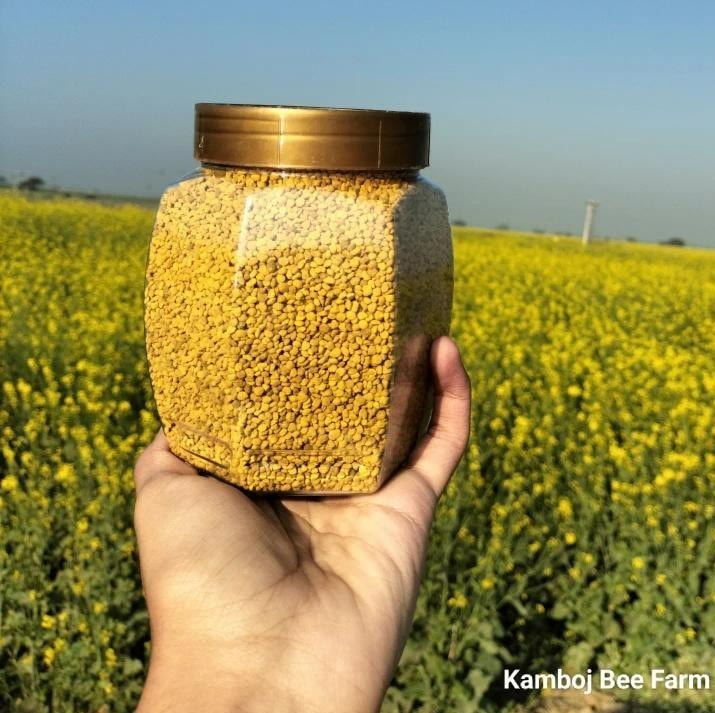
PEOPLE WHO ARE ALLERGIC TO POLLEN MUST NOT USE POLLEN!
It dissolves in honey, fruit juice, warm or cold tea, or milk, in the morning before eating, or in the evening before sleeping. It goes well in combination with smoothies and fruit salads.
The usual daily dose is 1-2 (10-15 gr.) tablespoons for adults, 1-2 teaspoons (2-6 gr.) for adolescents, and ½ - 1 teaspoon for children.
Here are some great suggestions for pollen:
Yerbero - Premium Bee Pollen
Micro Ingredients Pure Bee Pollen
Wild Row Organic Pollen
Greenbow Organic Bee Pollen
HONEYBEEZONE100% Natural Raw

